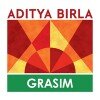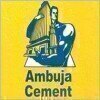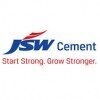Filter interviews by
Birla Corporation Interview Questions and Answers
39 Interview questions
The FRA process ensures fair compensation for land acquisition, focusing on transparency and community involvement.
FRA stands for the Forest Rights Act, which aims to recognize the rights of forest-dwelling communities.
Compensation under FRA includes both monetary and non-monetary benefits, such as land rights and livelihood support.
The process involves conducting a social impact assessment to gauge the effects on...
Ensure compliance with IS 1489:2015 in cement testing by following standard procedures and conducting regular audits.
Implement standardized testing procedures outlined in IS 1489:2015 for cement testing
Conduct regular audits to ensure testing equipment is calibrated and maintained properly
Train staff on IS 1489:2015 requirements and provide ongoing education to stay updated
Document all testing procedures and resul...
Key quality parameters in cement production include fineness, strength, setting time, and soundness.
Fineness: Determines the particle size of the cement, affecting its strength and setting time.
Strength: Indicates the compressive strength of the cement, crucial for construction durability.
Setting Time: Refers to the time taken for the cement to set and harden, impacting construction timelines.
Soundness: Measures t...
Transformer protection refers to the measures taken to ensure the safe operation of transformers and prevent damage.
Overcurrent protection: Protects against excessive current flow.
Overvoltage protection: Safeguards against high voltage levels.
Overtemperature protection: Prevents overheating of the transformer.
Differential protection: Detects internal faults by comparing input and output currents.
Buchholz relay: De...
Proficient in computer hardware, software, and programming languages relevant to electrical engineering.
Skilled in using CAD software for circuit design
Familiar with programming languages like C, Python, and MATLAB for simulations
Knowledge of microcontrollers and embedded systems programming
Experience with PLC programming for automation systems
Ohm's Law states that the current flowing through a conductor is directly proportional to the voltage applied across it, and inversely proportional to the resistance of the conductor.
Ohm's Law is represented by the formula V = IR, where V is voltage, I is current, and R is resistance.
It helps in calculating the relationship between voltage, current, and resistance in an electrical circuit.
For example, if a circuit...
Motor protection is a system designed to prevent damage to motors from electrical faults or overloads.
Motor protection devices include overload relays, thermal protectors, and circuit breakers.
These devices monitor the current and temperature of the motor to prevent overheating and damage.
Motor protection also involves proper grounding, insulation, and regular maintenance to ensure safe operation.
Examples of motor...
CTC stands for Cost to Company, which includes all expenses related to an employee's salary and benefits.
CTC includes salary, bonuses, benefits, and any other perks provided by the company.
It is the total amount of money a company spends on an employee in a year.
CTC is an important factor for employees to consider when evaluating job offers.
Employers may use CTC to attract and retain top talent in the industry.
The differential is a device that allows the wheels on an axle to rotate at different speeds while still receiving power from the engine.
Allows wheels on the same axle to rotate at different speeds
Transfers power from the engine to the wheels
Helps with cornering by allowing the outer wheel to rotate faster than the inner wheel
Consists of gears that distribute power evenly to the wheels
The dumper cooling system is responsible for maintaining the optimal temperature of the dumper to prevent overheating.
Regularly check the coolant levels and top up if necessary.
Inspect the radiator for any leaks or damage.
Clean the radiator fins to ensure proper airflow.
Monitor the temperature gauge regularly while operating the dumper.
If the dumper overheats, stop immediately and allow it to cool down before cont...
Birla Corporation Interview Experiences
63 interviews found
I applied via Job Fair and was interviewed in Sep 2024. There was 1 interview round.
(5 Questions)
- Q1. What is Ohm's Law?
- Ans.
Ohm's Law states that the current flowing through a conductor is directly proportional to the voltage applied across it, and inversely proportional to the resistance of the conductor.
Ohm's Law is represented by the formula V = IR, where V is voltage, I is current, and R is resistance.
It helps in calculating the relationship between voltage, current, and resistance in an electrical circuit.
For example, if a circuit has ...
- Q2. What are Transformer protection?
- Ans.
Transformer protection refers to the measures taken to ensure the safe operation of transformers and prevent damage.
Overcurrent protection: Protects against excessive current flow.
Overvoltage protection: Safeguards against high voltage levels.
Overtemperature protection: Prevents overheating of the transformer.
Differential protection: Detects internal faults by comparing input and output currents.
Buchholz relay: Detects...
- Q3. Your computer knowledge?
- Ans.
Proficient in computer hardware, software, and programming languages relevant to electrical engineering.
Skilled in using CAD software for circuit design
Familiar with programming languages like C, Python, and MATLAB for simulations
Knowledge of microcontrollers and embedded systems programming
Experience with PLC programming for automation systems
- Q4. What is motor protection?
- Ans.
Motor protection is a system designed to prevent damage to motors from electrical faults or overloads.
Motor protection devices include overload relays, thermal protectors, and circuit breakers.
These devices monitor the current and temperature of the motor to prevent overheating and damage.
Motor protection also involves proper grounding, insulation, and regular maintenance to ensure safe operation.
Examples of motor prot...
- Q5. What is your hobbies?
- Ans.
My hobbies include playing the guitar, hiking, and photography.
Playing the guitar helps me relax and express my creativity.
Hiking allows me to explore nature and stay active.
Photography is a passion of mine, capturing moments and scenes in a unique way.
I applied via Naukri.com and was interviewed in Aug 2024. There was 1 interview round.
(4 Questions)
- Q1. How does the Differential work.
- Ans.
The differential is a device that allows the wheels on an axle to rotate at different speeds while still receiving power from the engine.
Allows wheels on the same axle to rotate at different speeds
Transfers power from the engine to the wheels
Helps with cornering by allowing the outer wheel to rotate faster than the inner wheel
Consists of gears that distribute power evenly to the wheels
- Q2. How to work Dumper Cooling system.
- Ans.
The dumper cooling system is responsible for maintaining the optimal temperature of the dumper to prevent overheating.
Regularly check the coolant levels and top up if necessary.
Inspect the radiator for any leaks or damage.
Clean the radiator fins to ensure proper airflow.
Monitor the temperature gauge regularly while operating the dumper.
If the dumper overheats, stop immediately and allow it to cool down before continuin...
- Q3. How to work, work permit system during maintenance activities.
- Ans.
Work permit system is a formal process to ensure safety during maintenance activities.
Obtain necessary permits before starting any maintenance work.
Identify potential hazards and implement necessary safety measures.
Communicate with all involved parties about the work being done and safety precautions.
Regularly review and update work permits as needed.
Examples: hot work permit, confined space entry permit, electrical wo...
- Q4. Which grade oil is used in Hydraulic system.
- Ans.
The grade of oil used in a hydraulic system depends on the system's requirements and manufacturer recommendations.
The grade of oil used in a hydraulic system is typically specified by the system manufacturer.
Common grades of hydraulic oil include ISO VG 32, ISO VG 46, and ISO VG 68.
The grade of oil chosen should meet the viscosity and performance requirements of the hydraulic system.
Using the wrong grade of oil can lea...
(2 Questions)
- Q1. Tell me about yourself
- Ans.
Experienced financial analyst with a strong background in financial modeling and data analysis.
Over 5 years of experience in financial analysis
Proficient in financial modeling and forecasting
Skilled in data analysis and interpretation
Strong knowledge of accounting principles and financial regulations
Excellent communication and presentation skills
- Q2. Where do you see yourself in 5 years
- Ans.
In five years, I see myself as a senior financial analyst leading a team and contributing to strategic decision-making for the company.
Advancing to a senior financial analyst role
Leading a team of analysts
Contributing to strategic decision-making for the company
Continuing professional development through certifications or further education
I appeared for an interview in Feb 2025.
(2 Questions)
- Q1. About yourself self and what is your Job Profile
- Q2. Qualification and experience
Interview Preparation Tips
Assistant Manager Sales & Marketing Interview Questions & Answers
posted on 22 Apr 2025
I appeared for an interview in Mar 2025, where I was asked the following questions.
- Q1. Releated to market
- Q2. Releated to previous job & achievement
Interview Preparation Tips
(2 Questions)
- Q1. Take care of complaint & demand generation.
- Q2. Taking care of loyalty program & Lead generation.
(2 Questions)
- Q1. Technical question
- Q2. Concrete technology.
I appeared for an interview in Feb 2025, where I was asked the following questions.
- Q1. Property of cement
- Q2. Concret mix design
(5 Questions)
- Q1. What is the Specific gravity of Cement?
- Ans.
Specific gravity of cement is around 3.15 to 3.19.
Specific gravity of cement typically ranges from 3.15 to 3.19.
It is an important property of cement that helps in determining its quality and strength.
Specific gravity is the ratio of the density of a substance to the density of a reference substance (usually water).
- Q2. What is the Density of Cement?
- Ans.
The density of cement is typically around 1440 kg/m^3.
The density of cement can vary slightly depending on the type and brand.
Common densities for cement range from 1300 to 1600 kg/m^3.
Density is usually measured in kilograms per cubic meter (kg/m^3).
- Q3. What are the type of Cement ?
- Ans.
Types of cement include Portland cement, white cement, rapid hardening cement, and low heat cement.
Portland cement is the most common type used in construction
White cement is used for architectural purposes and to create colored concrete
Rapid hardening cement sets quickly and is used in projects with tight deadlines
Low heat cement generates less heat during hydration and is used in large concrete structures
- Q4. What is the raw material required for cement and it's proportion?
- Ans.
The raw materials required for cement are limestone, clay, gypsum, and iron ore. The proportions vary depending on the type of cement being produced.
Limestone is the primary raw material for cement production, typically making up around 80% of the total ingredients.
Clay is another key ingredient, providing the necessary silicon, aluminum, and iron.
Gypsum is added to control the setting time of the cement.
Iron ore is us...
- Q5. Difference between OPC and PPC Cement?
- Ans.
OPC Cement is Ordinary Portland Cement, while PPC Cement is Portland Pozzolana Cement.
OPC Cement is made by grinding clinker with gypsum, while PPC Cement is made by inter-grinding clinker, fly ash, and gypsum.
OPC Cement has higher strength and faster initial setting time compared to PPC Cement.
PPC Cement has better workability and is more resistant to aggressive chemicals than OPC Cement.
I applied via Referral and was interviewed in Apr 2024. There were 2 interview rounds.
(2 Questions)
- Q1. About domain related
- Q2. Personal detail
(2 Questions)
- Q1. Discuss about ctc
- Ans.
CTC stands for Cost to Company, which includes all expenses related to an employee's salary and benefits.
CTC includes salary, bonuses, benefits, and any other perks provided by the company.
It is the total amount of money a company spends on an employee in a year.
CTC is an important factor for employees to consider when evaluating job offers.
Employers may use CTC to attract and retain top talent in the industry.
- Q2. About family background
(2 Questions)
- Q1. Discussed about mining machines working and maintenance.
- Q2. Case study about machinary of mines and working.
Interview Preparation Tips
Top trending discussions






Birla Corporation Interview FAQs
The duration of Birla Corporation interview process can vary, but typically it takes about less than 2 weeks to complete.
Tell us how to improve this page.
Birla Corporation Interviews By Designations
- Birla Corporation Assistant Manager Interview Questions
- Birla Corporation Executive Interview Questions
- Birla Corporation Accounts Officer Interview Questions
- Birla Corporation Executive Accountant Interview Questions
- Birla Corporation Land Acquisition Manager Interview Questions
- Birla Corporation Senior Executive Interview Questions
- Birla Corporation Management Trainee Interview Questions
- Birla Corporation Engineer Interview Questions
- Show more
Interview Questions for Popular Designations
Overall Interview Experience Rating
based on 81 interview experiences
Difficulty level
Duration
Interview Questions from Similar Companies
Birla Corporation Reviews and Ratings
based on 968 reviews
Rating in categories
|
Assistant Manager
269
salaries
| ₹8.5 L/yr - ₹14.9 L/yr |
|
Senior Executive
118
salaries
| ₹5.6 L/yr - ₹12.7 L/yr |
|
Manager
96
salaries
| ₹12.7 L/yr - ₹22.5 L/yr |
|
Deputy Manager
85
salaries
| ₹8.5 L/yr - ₹17.7 L/yr |
|
Senior Engineer
71
salaries
| ₹4.5 L/yr - ₹10.6 L/yr |

UltraTech Cement

JK Cement

Grasim Industries

ACC
- Home >
- Interviews >
- Birla Corporation Interview Questions













